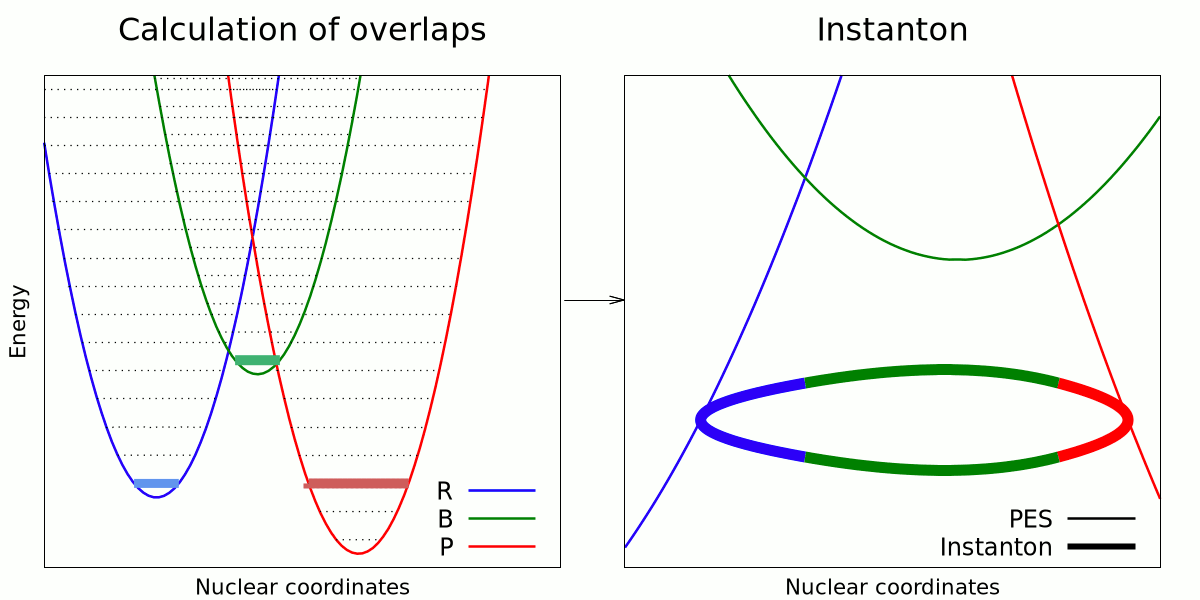New paper on Instanton theory for Fermi's golden rule and superexchange reactions

Previously, we have shown how one can approximate Fermi's golden rule with a semiclassical method called instanton theory. It provides a cost-efficient method of calculating nonadiabatic rates in the golden-rule limit that derives all necessary information from a single classical trajectory. It includes tunnelling and zero-point energy effects and the trajectory sheds light on the reaction mechanism during the tunnelling process.
In this paper, we go beyond the golden rule to deal with bridge-mediated nonadiabatic reactions (see figure). The rate expression for this type of a reaction, sometimes referred to as the superexchange mechanism, involves a sum over numerous bridge states. This makes its evaluation challenging and does not provide any meaningful insights into the reaction pathway. The bridge instanton, much like the golden-rule instanton, is also a single classical trajectory, which makes for an efficient numerical evaluation and an elegant mechanistic interpretation.
Additionally, we have also generalized golden-rule instanton theory to properly treat translational and rotational degrees of freedom, typically present in the study of nonadiabatic molecular reactions.
Ansari Imaad M., Heller Eric R., Trenins George and Richardson Jeremy O.. 2022 Instanton theory for Fermi’s golden rule and beyond. Phil. Trans. R. Soc. A. 380:20200378. 20200378.Imaad M. Ansari, Eric R. Heller, George Trenins and Jeremy O. Richardson